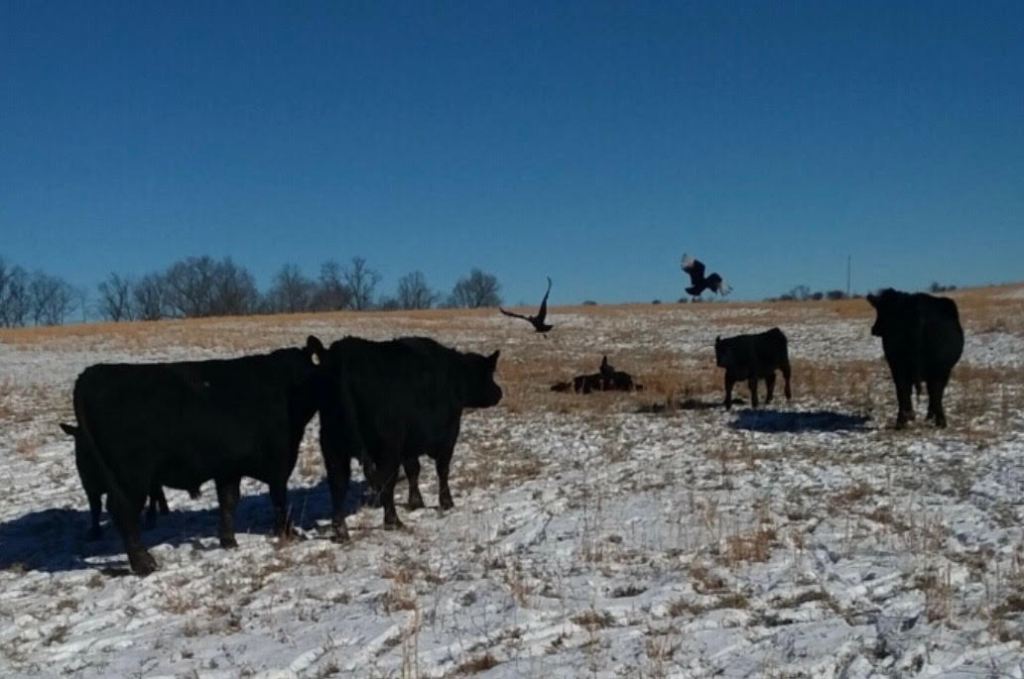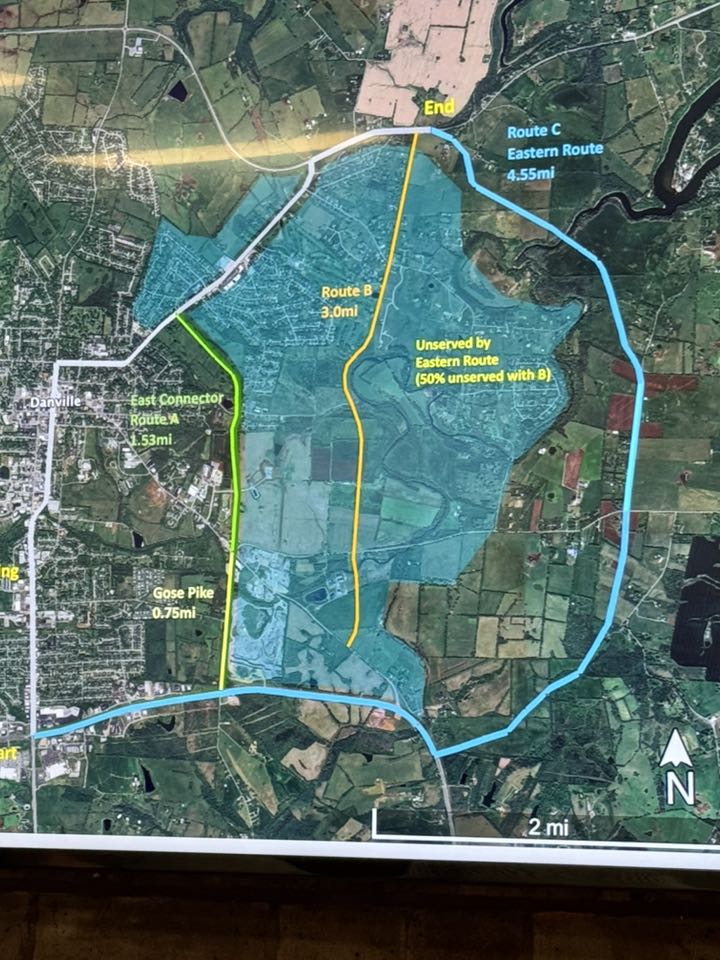Black Vultures threaten local livestock
Published 12:21 pm Monday, May 5, 2025

- Cows watch as Black Vultures attack calves. (Photo submitted)
josely.labarrere@bluegrassnewsmedia.com
Once rare in Kentucky, the black vulture has become a growing threat to livestock and the national beef supply, according to local officials, farmers, and agricultural experts. As these federally protected birds continue expanding their range, their impact on small farms—and the economy—is drawing urgent calls for reform.
Trending
In interviews with cattle producers and county magistrates, black vultures were described not as scavengers, but opportunistic predators, capable of coordinated, brutal attacks on newborn calves, weak animals, and even pets.
“We’ve witnessed 40 or 50 vultures encircle a mother cow and her newborn,” said Danny Lay, a Boyle County Extension Board member and farmer. “One bird will peck the cow’s face to distract her while the others go for the calf’s eyes. They don’t stop there. They work backward, attacking the calf until it dies.”
“A food security crisis”
Washington County Magistrate Stephen Carney, also a cattle farmer and livestock auctioneer, said the threat is far greater than individual losses—it’s an issue of national food security.
“Kentucky has the eighth-largest cow herd in the country and the largest east of the Mississippi,” Carney explained. “We’re the starting point of the pasture-to-plate pipeline.”
Carney said that most farms in the Commonwealth are small, family-owned operations raising calves to be sold out west for finishing. “When a black vulture takes one of those calves, it’s not just an economic loss for the farmer. That’s one less animal in the food supply,” he said. “And when our cow herd numbers are already at historic lows, every loss matters.”
Trending
With beef prices at an all-time high and demand surging, Carney warns that unchecked black vulture predation could continue to disrupt supply chains, pushing consumer prices even higher.
“It’s an emotional and economic blow”
Carney said he’s seen the damage firsthand: young calves too weak to escape, their eyes pecked out and abdominal areas torn apart by birds that begin feeding while the animal is still alive.
“These cattle producers spend all winter feeding and caring for their herds,” he said. “To lose a calf this way—after months of work and hope—it’s devastating.”
Lay echoed that sentiment. “These attacks are not just on animals. They’re on the livelihoods of our neighbors,” he said.
Legislative and public advocacy
Federal law protects both turkey and black vultures, but only black vultures have been reported attacking live animals. Several experts believe the black vultures’ expansion into Kentucky and beyond is linked to habitat destruction in South America.
Despite being “non-native,” black vultures fall under the Migratory Bird Treaty Act, and cannot be legally killed without a permit. However, local advocacy is growing.
Carney praised Congressman Andy Barr’s “Black Vulture Relief Act of 2025,” which would allow producers to apply for permits to euthanize a limited number of problem birds. “This is a step in the right direction,” Carney said. “But we need support at every level—federal, state, and local.”
Boyle County Magistrate Tom Ellis is encouraging a joint resolution from Kentucky’s House and Senate that would push Congress to rethink federal protections.
Meanwhile, the Kentucky Farm Bureau offers free sub-permits to farmers experiencing predation. But advocates say that education and awareness must go further.
“There’s a huge difference between turkey vultures and black vultures,” Lay said. “Turkey vultures clean up the dead. Black vultures kill the living.”
Observations and long-term concerns
Both Lay and Carney emphasized the adaptability and intelligence of the species. “I’ve seen black vultures circling before a single calf has even been born,” Carney said. “It’s like they know before we do.”
Lay, who lives near Herrington Lake, has observed black vultures nesting in barns and low-traffic areas—largely unbothered by human presence.
“These birds are not going away on their own,” Lay said. “And without natural predators, something has to be done.”
Carney believes research should play a central role. “We need the USDA and the Secretary of Agriculture to engage land-grant universities nationwide,” he said. “This is a biology, ecology, and public policy issue all in one.”
How to help
Public awareness and engagement are key, Lay and Carney said.
- Report attacks to the USDA Wildlife Services at (502) 254-1592.
- Apply for sub-permits through the Kentucky Farm Bureau by calling (502) 495-5000.
- Contact local officials and legislators to support the repeal or amendment of black vulture protections.
- Support local producers impacted by losses.
“We need consumers to understand,” Carney said. “This isn’t just about a few farmers. This is about ensuring there’s enough beef in the meat case for every American family.”
As Lay put it: “We’re not just dealing with a nuisance anymore. We’re dealing with a predator. And it’s time to act.”






